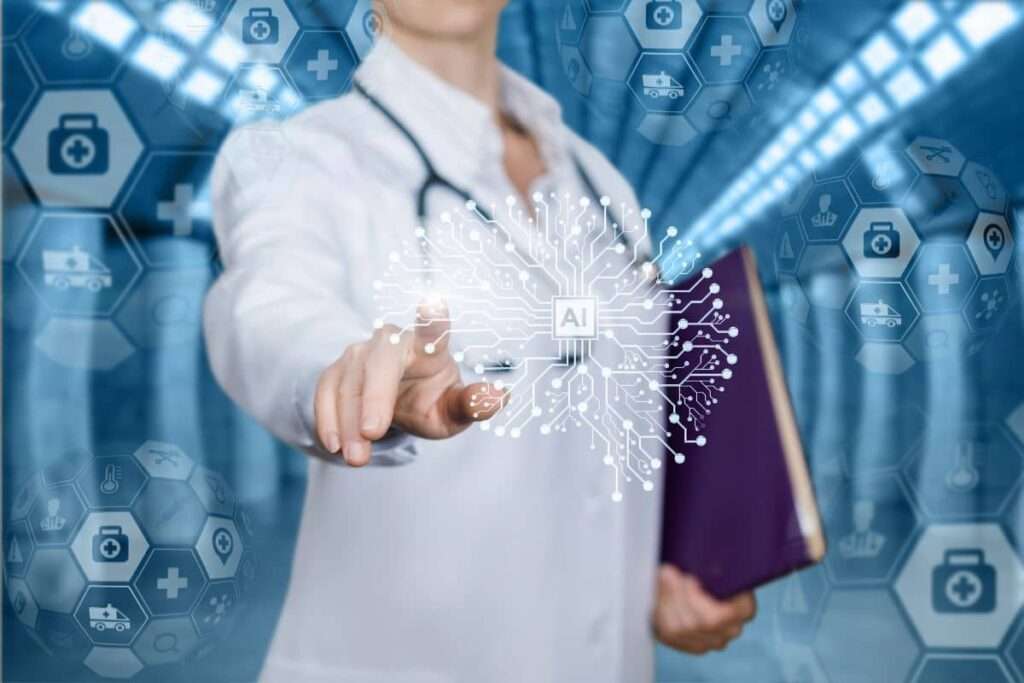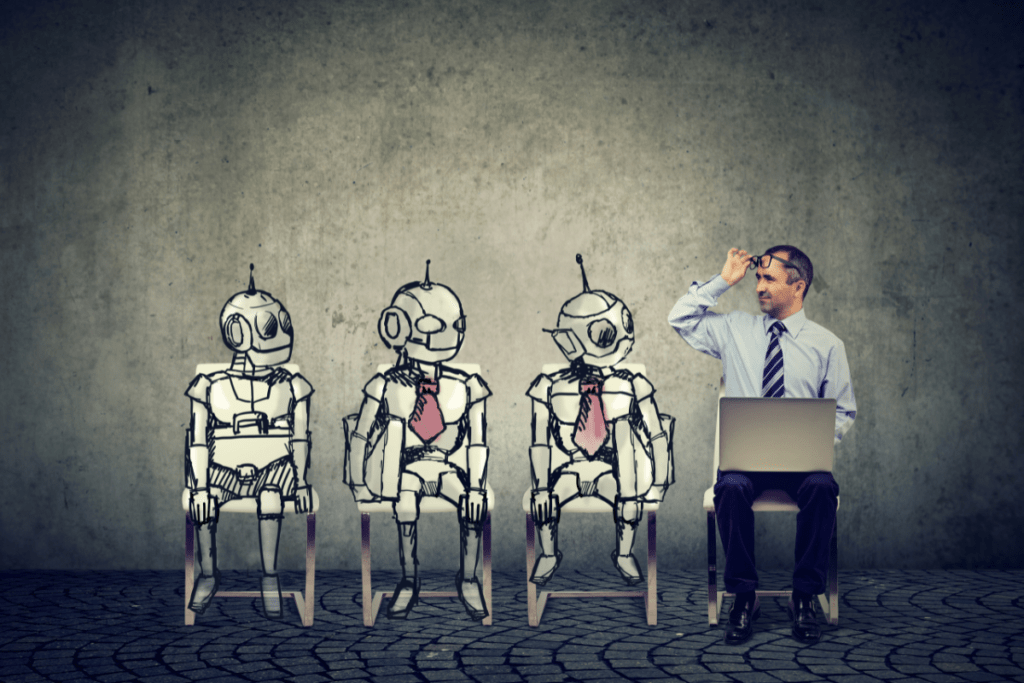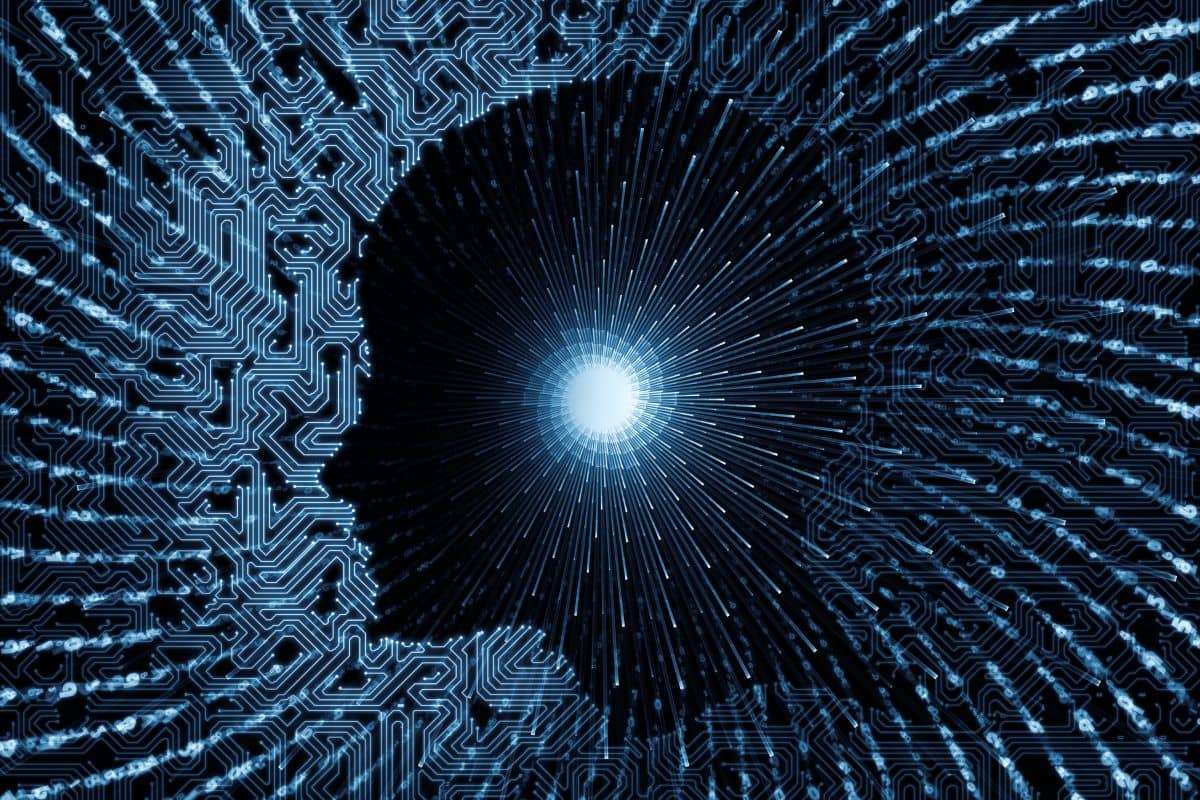Introduction
In recent years, artificial intelligence (AI) has emerged as a revolutionary force, reshaping industries, enhancing efficiency, and driving innovation across the globe. From healthcare to finance, education to transportation, AI has permeated virtually every aspect of human life, offering unprecedented opportunities for advancement and progress. In this comprehensive article we will discus how artificial intelligence is helpful for humanity.
Understanding the Impact of AI on Humanity
1. Advancements in Healthcare
AI has revolutionized healthcare by enabling faster and more accurate diagnosis, personalized treatment plans, and predictive analytics for disease prevention. Machine learning algorithms analyze vast amounts of medical data to identify patterns and trends, assisting healthcare professionals in making informed decisions and improving patient outcomes.

Image by Canva
2. Enhancing Education
In the field of education, AI-powered tools facilitate personalized learning experiences, adapt to students’ individual needs, and provide real-time feedback to optimize learning outcomes. Virtual tutors, interactive simulations, and adaptive learning platforms empower students to engage with educational content in dynamic and meaningful ways, fostering creativity, critical thinking, and problem-solving skills.

Image by Canva
3. Transforming Transportation
AI is driving innovation in transportation through autonomous vehicles, predictive maintenance, and traffic optimization systems. Self-driving cars promise to improve road safety, reduce traffic congestion, and enhance mobility for individuals with disabilities or limited access to transportation. AI-powered navigation apps analyze traffic patterns and provide real-time route recommendations, optimizing travel efficiency and reducing environmental impact.

Image by Canva
4. Revolutionizing Finance
In the financial sector, AI algorithms analyze market data, detect fraudulent transactions, and optimize investment strategies. Robo-advisors provide personalized financial advice, automate portfolio management, and offer cost-effective solutions for individual investors. AI-powered chatbots enhance customer service, streamline banking operations, and improve user experience across digital platforms.
5. Environmental Conservation
Environmental conservation is another area where AI is proving to be invaluable. AI technologies are utilized to monitor and manage natural resources, protect wildlife, and combat environmental degradation. For example, AI-powered sensors and drones gather data on ecosystems, climate patterns, and wildlife habitats, enabling researchers to make informed conservation decisions.
Moreover, AI algorithms analyze satellite imagery to detect deforestation, illegal poaching, and other environmental threats, facilitating timely intervention measures. Additionally, AI-based models and simulations help policymakers assess the impact of human activities on the environment and devise strategies for sustainable development.
Video by Digital Transformation with Eric Kimberling YouTube Channel
Conclusion: How Artificial Intelligence is Helpful for Humanity
As artificial intelligence continues to evolve and expand its capabilities, its impact on humanity will only grow more profound. By harnessing the power of AI technologies responsibly and ethically, we have the potential to address some of the most pressing challenges facing society today and create a brighter, more equitable future for all.
FAQs
1. How does AI contribute to environmental sustainability?
AI enables predictive analytics for environmental monitoring, precision agriculture, and energy optimization, helping to mitigate climate change and promote sustainable development.
2. What are the ethical considerations surrounding AI adoption?
Ethical concerns related to AI include data privacy, algorithmic bias, job displacement, and autonomous decision-making. It is essential to prioritize transparency, accountability, and fairness in AI development and deployment.
3. How can individuals prepare for the AI-driven future?
To thrive in an AI-driven world, individuals should cultivate skills in critical thinking, creativity, adaptability, and digital literacy. Continuous learning, interdisciplinary collaboration, and ethical awareness are essential for navigating the complexities of the AI landscape.
4. In what ways does artificial intelligence benefit the business sector?
Businesses leverage artificial intelligence for various purposes, such as customer service automation, predictive analytics, supply chain optimization, fraud detection, and marketing personalization. AI-driven insights help businesses make data-driven decisions, enhance operational efficiency, and gain a competitive edge in the market.
5. How is artificial intelligence helpful for healthcare?
Artificial intelligence has numerous applications in healthcare, including medical image analysis, personalized treatment plans, drug discovery, patient monitoring, and administrative tasks automation. AI algorithms can analyze large datasets quickly, leading to faster and more accurate diagnoses, ultimately improving patient outcomes and reducing healthcare costs.
